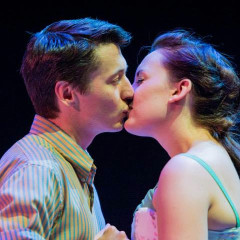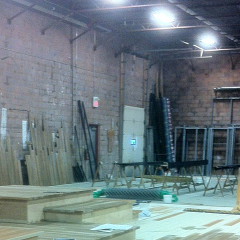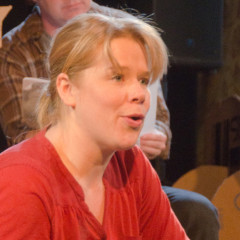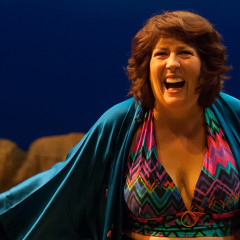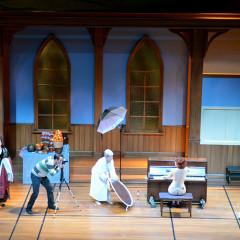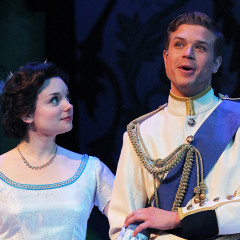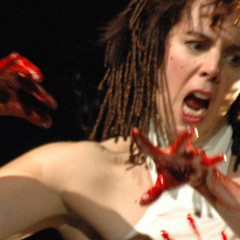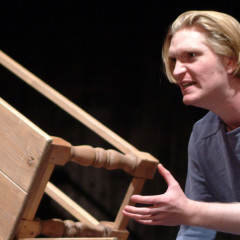A Christmas Carol at Theatre North West, adapted and directed by Heather Davies, Nov/Dec 2015
Fred: But, dear Uncle, what’s never been revealed is how you came to join us that fateful Christmas Day.
Uncle Scrooge: It haunts me still…
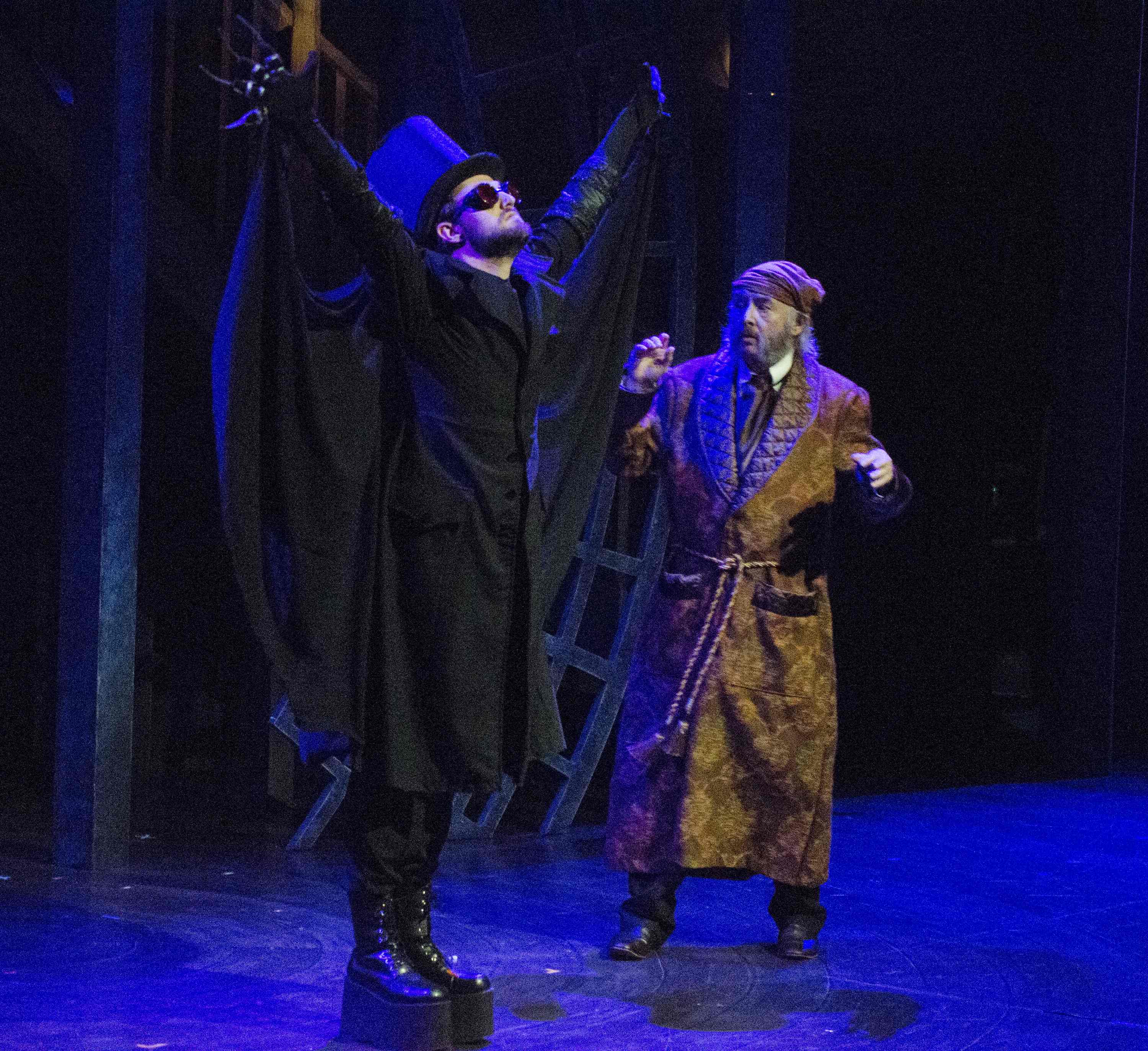 Victor Dolhai (Ghost of Christmas Future) and David Warburton (Scrooge)
Victor Dolhai (Ghost of Christmas Future) and David Warburton (Scrooge)
Adapting and directing this classic novel was a real joy. I have loved this novel since I was a child, so I was thrilled to be asked by Jack Grinhaus to write and direct my own adaptation.
The production in BC combined the familiar Dickens-Victorian world with a Steam punk-Ghost-World. The Steam punk parallel world allowed us to amplify the change of status that Scrooge experiences during the intervention. The ghosts are absolutely in control, not Scrooge. The rebellious, edgy energy of Steam punk also allowed us to amplify the stakes of Scrooge’s intervention; it allowed us a more unpredictable energy, to ask and explore the question, “will this work or not?” And it allowed us to explore the ‘universal machinery’ that exists around us, which is not usually acknowledged in our daily lives.
With at least 48 other adaptations of this novel around, it was a challenge to find ‘my own way in’ without repeating other ideas. Dickens’ narrative voice is, for me, is one delight of this novel, so I wanted to include some of the original story-telling in the adaptation. I passionate about ensemble theatre, so I knew I wanted this flavour in the work. Also, I was curious, would a man like Scrooge ever share the story of his intervention? I mean, it sounds pretty wacky- you know?
Charles Dickens uses the word ‘intervention’ throughout this story. He makes it clear that Marley has arranged this event to save Scrooge’s soul. When I started working on the adaptation the word ‘intervention’ made me think of reality TV programs with tons of drama where the intervention often fails. It also made me curious, “does the effect of the intervention that Scrooge goes through stay with him the rest of his life?” And I further wondered, “does he ever tell anyone about it?”
Secrets featured heavily in Dickens’ life. In 1824 Charles Dickens’ father was sent to Debtor’s Prison (which meant that most of his family went as well). Although Charles was spared that hardship, at the age of twelve he began working ten hours a day in a ‘boot-blacking factory’, gluing labels on the pots. He worked there, living in extreme poverty, for nearly two years before his family were out of prison and they allowed him to return home. As an adult he became a champion for social justice however, he kept his time at the factory a secret from most people, including his wife, for many, many years. It was a cause of great shame and weighed heavily on him.
It was with these two thoughts in mind that I wondered, “what would make Scrooge share the story of his time with the Spirits?” And that is where we begin this adaptation of A Christmas Carol: with Scrooge’s decision to share an extraordinary secret.
And so, the play begins at Nephew Fred’s house, seven years after the original story. After toasting, “Happy Anniversary” to Scrooge’s seventh Christmas with the family, nephew Fred nudges his uncle.
Fred: But, dear Uncle, what’s never been revealed is how you came to join us that fateful Christmas Day.
Uncle Scrooge: It haunts me still…
And soon after this, he begins to share this ghostly Christmas tale.
Here are a couple of links about the production.
http://www.cfur.ca/bah-humbug-a-review-of-theatre-northwests-new-show/
http://www.princegeorgecitizen.com/entertainment/local-a-e/christmas-carol-adaptation-no-humbug-1.2119058
